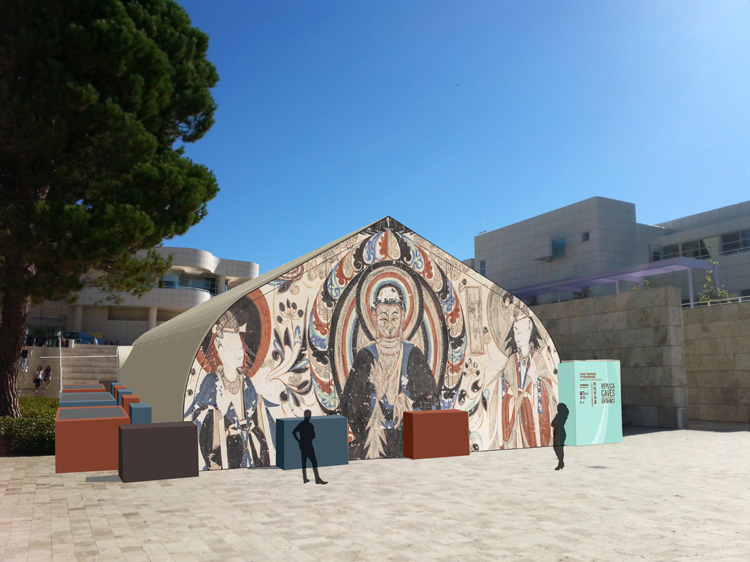
Designer’s rendering showing the future appearance of the replica cave structure
Visitors to the Getty have noticed a change on the tram arrival plaza over the past few weeks, along with the sound of saws, drills, and hammers, and even a few crane sightings. The change is in the shape of an enormous tent that will eventually house three full-scale replica cave temples as part of the exhibition Cave Temples of Dunhuang: Buddhist Art on China’s Silk Road, opening May 7.

Morning panorama of the replica cave structure under construction. See this panorama larger.
The exhibition commemorates over 25 years of collaboration between the Getty Conservation Institute and the Dunhuang Academy to conserve the Mogao Grottoes, a Buddhist religious site situated a short distance from the city of Dunhuang in northwestern China, on the edge of the Gobi desert. Over a period of a thousand years (fourth to fourteenth centuries) cave temples were carved into a cliff face, many of which were decorated with exquisite wall paintings and sculptures. Today, 492 decorated caves survive at this UNESCO World Heritage site.
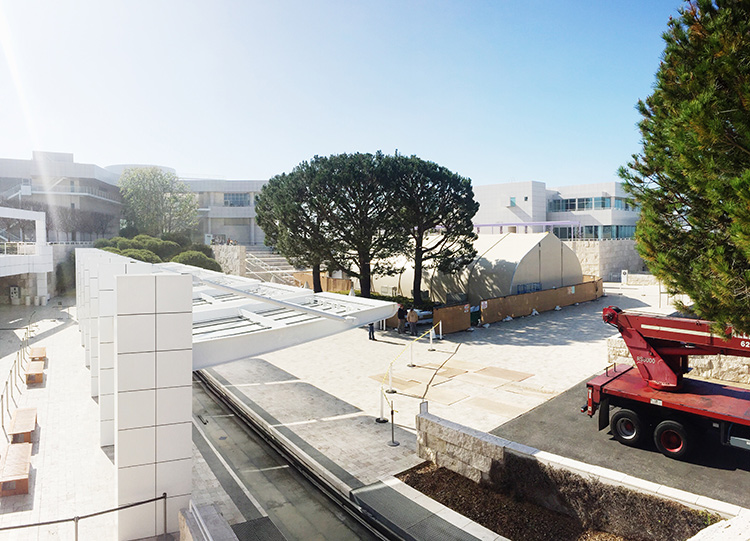
The replica cave structure takes shape on the Getty Center plaza
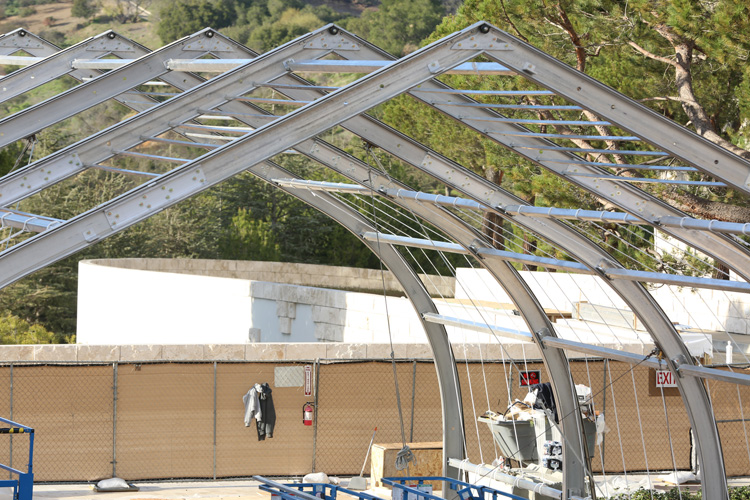
Aluminum arches of the replica cave structure during early days of construction

Roofline of the structure during construction, looking east
Because the Getty can’t bring the actual cave temples to Los Angeles, three full-size replica caves have been created by artists from the Dunhuang Academy’s Fine Art Institute. The replica caves are constructed through a painstaking, multiyear process that includes photographing and printing images of the caves’ walls at their original scale, tracing the images with pencil, and then with a brush creating a contour-line drawing on top of the tracing. The drawings are then mounted on a board, and a range of pigment, brush and coloring techniques are used to complete them. Once dry, the paintings are then mounted on the inner surface of the replica cave’s wooden framework, which has been crafted to the exact dimensions of the original cave.
The replica caves at the Getty will span the 5th to the 8th centuries and include brilliantly colored, dynamic wall paintings that tell stories of the Buddha, incorporate Hindu and indigenous Chinese deities into a Buddhist context, and more. This video shot in China shows a peek inside the replication process.
There’s More to Come
In addition to the replica caves, there will be an exhibition at the Getty Research Institute of rare objects from the site, as well as a virtual immersive room that will allow visitors to experience one of the caves using 3D stereoscopic technology. Got to getty.edu/cavetemples for more information and to plan your visit.
But first, we ask that you please pardon our dust as we make the beautiful caves come to life over the next few months.

A peek inside as insulation goes in under the all-weather shell
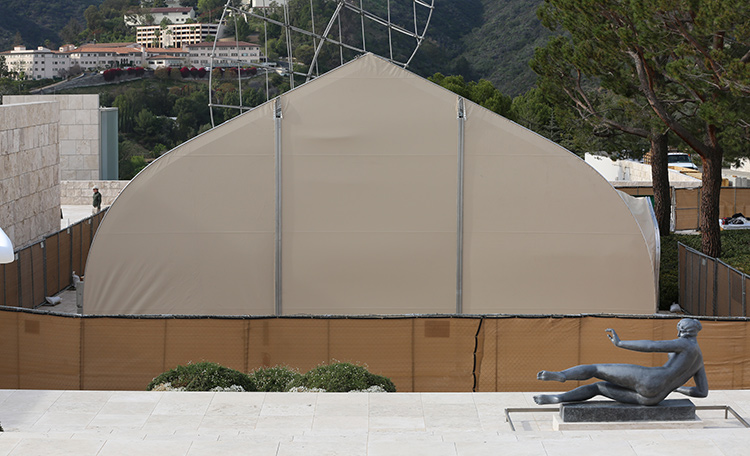
View of the structure-in-progress, with the all-weather shell, looking north from the top of the Museum Stairs
For more information, read an earlier post: 14 Fascinating Facts about the Cave Temples of Dunhuang

See all posts in this series »

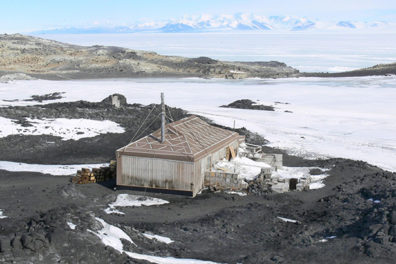

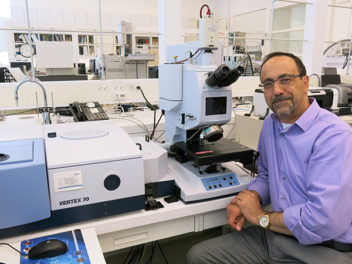
Comments on this post are now closed.